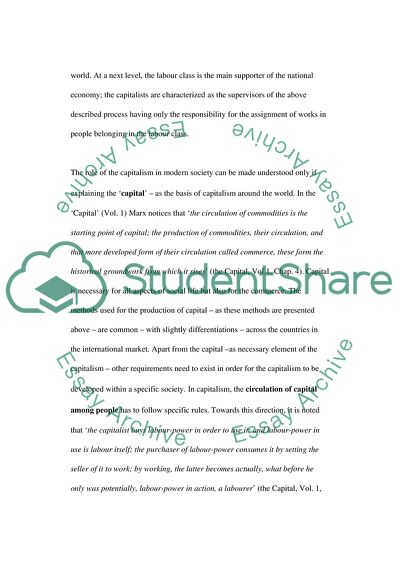Cite this document
(The Ways in Which Marx and Weber Understand the Nature of Capitalism Literature review, n.d.)
The Ways in Which Marx and Weber Understand the Nature of Capitalism Literature review. Retrieved from https://studentshare.org/social-science/1719177-drawing-on-and-citing-examples-from-your-sources-on-marx-and-engels-and-weber-compare-the-ways-in-which-marx-and-weber-understand-the-nature-of-capitalism
The Ways in Which Marx and Weber Understand the Nature of Capitalism Literature review. Retrieved from https://studentshare.org/social-science/1719177-drawing-on-and-citing-examples-from-your-sources-on-marx-and-engels-and-weber-compare-the-ways-in-which-marx-and-weber-understand-the-nature-of-capitalism
(The Ways in Which Marx and Weber Understand the Nature of Capitalism Literature Review)
The Ways in Which Marx and Weber Understand the Nature of Capitalism Literature Review. https://studentshare.org/social-science/1719177-drawing-on-and-citing-examples-from-your-sources-on-marx-and-engels-and-weber-compare-the-ways-in-which-marx-and-weber-understand-the-nature-of-capitalism.
The Ways in Which Marx and Weber Understand the Nature of Capitalism Literature Review. https://studentshare.org/social-science/1719177-drawing-on-and-citing-examples-from-your-sources-on-marx-and-engels-and-weber-compare-the-ways-in-which-marx-and-weber-understand-the-nature-of-capitalism.
“The Ways in Which Marx and Weber Understand the Nature of Capitalism Literature Review”. https://studentshare.org/social-science/1719177-drawing-on-and-citing-examples-from-your-sources-on-marx-and-engels-and-weber-compare-the-ways-in-which-marx-and-weber-understand-the-nature-of-capitalism.


